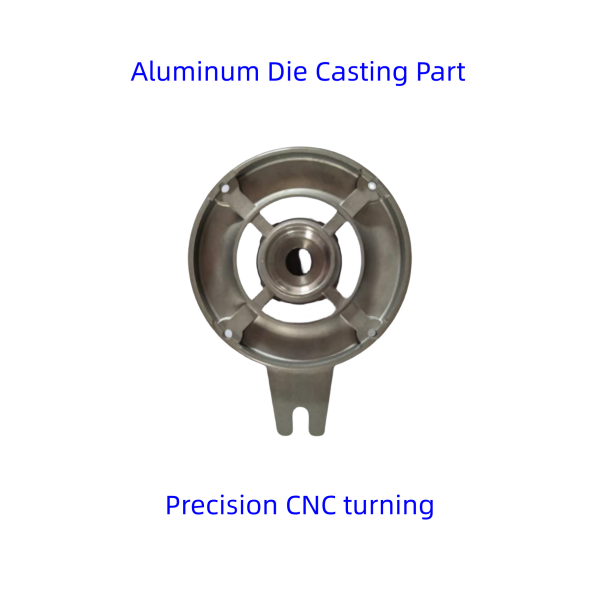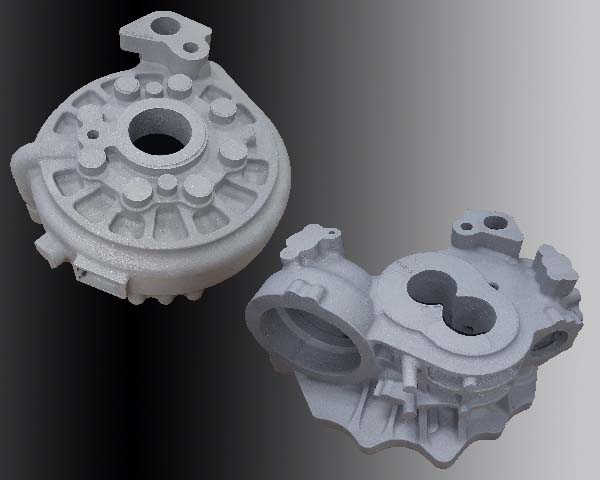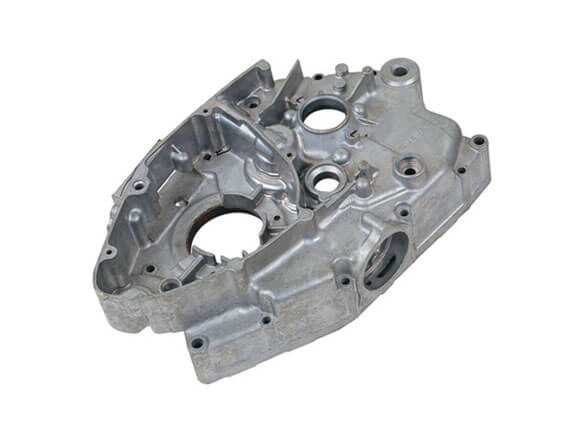Exactly How Factory Provider Enhance Production Efficiency and High Quality in Industrial Applications
Factory solutions play an essential duty in boosting manufacturing performance and top quality across different commercial applications. By implementing innovative steel casting strategies, these solutions assure elements are made with accuracy and consistency. This not only reduces preparations yet additionally reduces waste, promoting much better collaboration between foundries and producers. The influence of top quality components on functional performance raises vital concerns concerning the future of commercial manufacturing. What innovations exist ahead in this developing landscape?
The Role of Factory Providers in Streamlining Manufacturing Processes

Furthermore, factories usually provide competence in alloy development, enabling manufacturers to use advanced materials that boost product performance. The partnership between producers and shops fosters a better understanding of manufacturing demands, causing enhanced procedures and enhanced product layouts. By leveraging factory services, producers can attain higher adaptability, adjust to transforming market demands, and preserve competitiveness in the sector. Generally, the function of foundry services is important in helping with an extra reliable and affordable manufacturing landscape.
Advanced Technologies in Foundry Operations
Cutting-edge innovations are changing foundry procedures, markedly improving productivity and precision. Automation plays a necessary duty, with robotic systems simplifying repeated jobs such as molding and product handling. Additionally, innovations in computer-aided design (CAD) and computer-aided production (WEBCAM) systems allow foundries to produce intricate geometries with better accuracy and reduced product waste.
The assimilation of synthetic knowledge (AI) and equipment understanding enhances top quality control by checking processes in real-time and predicting prospective problems before they take place. The usage of advanced products, such as lightweight alloys and compounds, better boosts the efficiency attributes of cast items.
3D printing modern technology is changing prototyping and tooling, allowing for rapid personalization and lowered lead times. Jointly, these advanced technologies not just elevate production efficiency however also ensure that the final items satisfy rigorous high quality requirements, positioning foundries at the leading edge of modern-day commercial applications.
Decreasing Lead Times Through Efficient Factory Practices
Effective factory methods play an important role in decreasing preparations within manufacturing settings. By carrying out structured manufacturing processes and progressed organizing methods, manufacturers can enhance process and maximize source allocation. These enhancements not only accelerate output however also add to overall operational efficiency.
Structured Production Processes
Simplifying manufacturing procedures is crucial for minimizing lead times in the production market. Efficient shop practices, consisting of maximized process and source management, play an important function in achieving this objective. By reducing waste and improving communication amongst groups, foundries can greatly enhance their functional effectiveness. The application of standardized procedures likewise adds to regular top quality and faster turn-around times, making it possible for makers to respond even more promptly to market demands. Additionally, the combination of advanced technologies, such as automation and real-time tracking systems, assists in identifying traffic jams and assisting in prompt treatments. Overall, a focus on structured production processes not only accelerates lead times but additionally enhances the overall competitiveness of commercial applications, ensuring that items meet consumer expectations properly.
Advanced Organizing Techniques
Efficient production procedures normally lead suppliers to explore sophisticated organizing strategies as a method to further reduce lead times. By using advanced formulas and software, foundries can maximize workflows, straightening production routines with need forecasts and resource schedule. Strategies such as Just-In-Time (JIT) scheduling lessen inventory costs while making sure timely material delivery, therefore boosting operational performance. Furthermore, integrating real-time information analytics permits factories to prepare for potential delays and change routines proactively. This versatility not only enhances procedures however likewise increases total performance. Collective planning with vendors and customers can foster an extra synchronized supply chain, more lowering lead times. Inevitably, these advanced scheduling strategies equip shops to achieve higher performance and exceptional top quality in their production procedures.
Guaranteeing Precision and Quality in Steel Casting
Ensuring precision and quality in metal casting needs a thorough approach that encompasses every stage of the manufacturing procedure. This procedure starts with cautious layout and engineering of the molds, guaranteeing they can withstand the liquified steel's temperature and pressure. The selection of top quality basic materials is necessary, as contaminations can compromise the last product.
Once the products are prepared, specific temperature level control throughout melting and putting is basic to achieve the desired properties in the actors metal. Keeping track of solidification and air conditioning rates further guarantees dimensional precision and surface area finish.
Quality guarantee practices, such as non-destructive screening like this and examination, are essential to identifying issues early at the same time. Aluminum Foundry. Furthermore, using experienced personnel that recognize the subtleties of steel casting contributes substantially to preserving high criteria. On the whole, these techniques collectively improve the reliability and performance of cast parts in various industrial applications
Decreasing Waste and Maximizing Source Use

Additionally, reusing scrap steel within the shop itself can considerably decrease waste, changing by-products into functional sources. Lean making concepts likewise add to waste decrease by improving procedures and eliminating unnecessary steps, causing more efficient procedures.
Routine maintenance of equipment warranties peak performance, preventing breakdowns that can result in wasted products. By concentrating on these strategies, article foundries not just minimize expenses but likewise contribute to sustainable methods, lining up with the growing need for environmentally liable manufacturing methods in commercial applications.
The Competitive Benefit of High-Quality Elements in the Market
Top notch parts offer a considerable affordable benefit in the foundry market, where accuracy and toughness are critical. Suppliers that prioritize exceptional products and workmanship can boost product efficiency and dependability, resulting in increased customer satisfaction. This benefit is particularly evident in markets such as auto and aerospace, where component failure can have devastating effects.
Premium components usually result in reduced upkeep costs and expanded product lifespans, which can be attractive selling factors for prospective customers. As market needs expand for effective and sustainable innovations, the focus on quality becomes much more crucial. Firms that purchase top quality foundry services not only enhance their production procedures yet also differentiate themselves from rivals who might give up top quality for expense savings. The dedication to premium elements eventually equates right into a more powerful market placement and lasting organization success.
Often Asked Inquiries
What Kinds of Products Do Factory Services Commonly Collaborate With?
Foundry solutions normally function with metals such as light weight aluminum, steel, brass, and iron, along with different alloys. They additionally deal with products like compounds and ceramics, providing to diverse industrial needs and specs in producing processes.
How Do Shop Provider Effect Overall Supply Chain Management?
Foundry services considerably enhance supply chain management by enhancing product sourcing, decreasing preparations, and guaranteeing regular high quality. Their capability to provide tailored remedies fosters cooperation among stakeholders, inevitably boosting overall additional info functional performance and responsiveness in manufacturing.
What Industries Benefit The Majority Of From Factory Providers?
Industries such as vehicle, aerospace, consumer, and building products considerably take advantage of foundry services. These industries rely upon accuracy spreadings to meet stringent top quality criteria and boost their overall production processes and product performance.
Are Foundry Services Sustainable and Eco Pleasant?
Factory solutions can be environmentally pleasant and lasting, specifically when employing sophisticated innovations and procedures - aluminum casting. Advancements such as recycling materials, decreasing discharges, and enhancing power usage contribute to reducing their environmental impact in industrial applications

Just How Can Business Choose the Right Factory Provider?
Companies can pick the best factory provider by reviewing know-how, manufacturing capabilities, quality certifications, modern technology utilized, consumer reviews, and sustainability practices while guaranteeing placement with their specific project needs and long-lasting business goals.
Foundry solutions play an essential function in improving manufacturing performance and high quality across different industrial applications. The cooperation between makers and foundries promotes a better understanding of production needs, leading to maximized processes and improved product layouts. Efficient foundry techniques play a crucial duty in minimizing lead times within manufacturing atmospheres. By employing advanced formulas and software application, foundries can enhance operations, aligning manufacturing schedules with demand projections and source availability. Business that invest in high-grade shop services not only boost their production processes but likewise separate themselves from rivals that may give up quality for price savings.